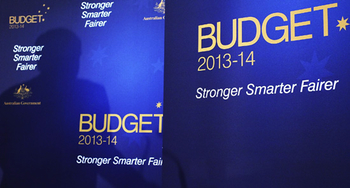
Do billionaire arsehat and political candidate Clive Palmer and his colleagues really think that this is the best hand gesture to make in 2013? “Fisting the Future!” Jesus wept.
Continue reading “Clive Palmer, “Fisting the Future””
Word-whore. I write 'em. I talk 'em. Information, politics, media, and the cybers. I drink. I use bad words. All publication is a political act. All communication is propaganda. All art is pornography. All business is personal. All hail Eris! Vive les poissons rouges sauvages!

Do billionaire arsehat and political candidate Clive Palmer and his colleagues really think that this is the best hand gesture to make in 2013? “Fisting the Future!” Jesus wept.
Continue reading “Clive Palmer, “Fisting the Future”” My week Monday 20 to Sunday 26 May 2013 was spent returning from The America, and then reading, writing, planning and generally trying to focus on the future.
My week Monday 20 to Sunday 26 May 2013 was spent returning from The America, and then reading, writing, planning and generally trying to focus on the future.
If that sounds vague, it’s because it was vague. And it felt vague. It was all very, very vague. But the next week will be less vague. By at least fifteen percent.
None.
None, which I suppose counterbalances last week.
On Monday I’m doing the day trip to Sydney to catch up with Peter Coffee, Salesforce.com VP and head of platform research, for a chat about The Future. This is, I think, our fourth attempt at meeting up since we met at the Dreamforce event two years ago, and I’m very much looking forward to it.
Tuesday is mostly a day of writing and research back at Wentworth Falls, although it kicks off with at spot on Radio Adelaide talking about the differences between the broadband policies of Labor and the Coalition. That’s at 0745 ACST / 0815 AEST.
Wednesday sees me heading into Sydney again, for interviews with Eugene Kaspersky of Kaspersky Lab and Chris Wood from Sourcefire, and then in the evening a long dinner and drinks event with Mr Kaspersky. I suspect I’ll be staying overnight in Sydney that night. If I survive the experience at all.
And then the rest of the week is about writing and podcast production. Probably. You known how my weeks go. Disorganisedly.
[Photo: How they make chemtrails, photographed at dusk over San Francisco International Airport. They’re just so blatant about it these days. While this photograph was taken on the evening of Sunday 19 May 2013 local time, it was already Monday 20 May Australian time, so I’m allowing myself to use this photo this week.]
 Here’s a list of the news stories I’ve found this morning that have been written about the AusCERT 2013 information security conference.
Here’s a list of the news stories I’ve found this morning that have been written about the AusCERT 2013 information security conference.
The theme for this year’s conference was “This time it’s personal”:
[The theme reflects] the growth in attacks and unauthorised disclosures of online personal information. Motivated by illicit financial gain, cyber criminals obtain unauthorised access to personal information, but more and more, we are seeing data disclosures being posted publicly by attackers for political motives, rather than financial gain.
Hence the theme will resonate within the information security community and remind us that the online environment provides opportunities galore to capture personal information; of the impact these breaches can have on the lives of individuals; and the importance of information security to prevent these attacks. AusCERT2013 will explore these issues and bring experts from Australia and around the world to provide insight and solutions to deal with these challenges.
Items are arranged alphabetically by masthead and then chronologically. If I’ve missed anything, please let me know. Indeed, I daresay that some more articles will be published on Monday or Tuesday, so if that happens I’ll update this post appropriately.
There’s a lot here for me to read, so if I’m going to write a reaction piece some time then it’ll be… later.
Continue reading “Infosec at AusCERT 2013: the media coverage”
 I didn’t make it to information security conference AusCERT 2013 this year. I’m about to read what’s been written and compile a list — but first, a reflection on what happened in 2012.
I didn’t make it to information security conference AusCERT 2013 this year. I’m about to read what’s been written and compile a list — but first, a reflection on what happened in 2012.
When I look back two years to what I wrote from AusCERT 2011, I’m reminded that we were just getting our head around the implications of the Stuxnet worm. Not only was malware being written by organised criminals, and we were facing an explosion of anti-banking malware and mobile malware, and looking ahead to when an angry child might deploy malware against their neighbours — we were now made well aware that malware was also being written by nation states with budgets in the millions of dollars and beyond.
But looking through the list (below) for AusCERT 2012, what jumps out is the emphasis on the militarisation of information security, as well as the emphasis in the scale of criminal activities. I won’t expand on that, because the conversation with AusCERT general manager Graham Ingram speaks for itself.
After the conference, my flight back to Sydney was delayed. With the need to kill some time, this video was the result.
My compilation of reports from AusCERT 2013 will be posted later today. My compilation of reports from AusCERT 2013 is now online.
 My week Monday 13 to Sunday 19 May 2013 was spent in San Francisco and San Jose which, I am reliably informed, are cities in The America.
My week Monday 13 to Sunday 19 May 2013 was spent in San Francisco and San Jose which, I am reliably informed, are cities in The America.
It also finished nearly a week ago, so I’ll just list the things for now. Should I be in the mood, I’ll reflect upon the week tomorrow.
Since it’s already Saturday afternoon, there’s not really much point, is there? There’ll be a new Weekly Wrap tomorrow.
[Photo: Vesuvio’s $8 Bloody Mary. At Vesuvio in San Francisco, the bar where Jack Kerouac used to drink, you can get one of these fine Bloody Marys for just $8. Plenty of vodka, spiced as you require, with a huge stuffed Spanish olive, white pickled onion, lemon and lime.]
[As it turns out, my planned Budget commentary for Crikey didn’t happen. I got up early in San Jose, read the budget papers and made notes, but then my as-yet-unwritten article got spiked. This is a quick and somewhat belated post based on my notes, not as polished as it might have been if written for Crikey.]
 The problem with Australia’s Labor government is that after having had One Big Idea for a bold new future in the National Broadband Network (NBN), they’ve come up with almost nothing anywhere else. This year’s federal budget was a dull plod. Again.
The problem with Australia’s Labor government is that after having had One Big Idea for a bold new future in the National Broadband Network (NBN), they’ve come up with almost nothing anywhere else. This year’s federal budget was a dull plod. Again.
There was even one move which struck me as remarkably dumb: capping the available tax deductions for self-education expenses at just $2000 a year. Apparently that saves $500 million, and that’ll go to the schools — and schools are good for the kiddies, of course — but that’s half a billion dollars less for people to be able to keep up with a rapidly-changing work environment.
This strikes me as particularly stupid when so many of the people servicing the computers, networks and other technology that powers small business are often freelancers, as are so many web developers and designers.
Two grand a year doesn’t go far when it costs nearly half that just to attend the annual user conference for just one of your core software toolsets — more if you have to add airfares and accommodation — and the rest would soon be burnt up on a handful of reference books.
Back when I used to work in various management and staff development roles, I was told that any organisation that wants to advance its knowledge base should be spending at least 5% of its time on staff development. In a technology field, in my opinion, that should be at least 10%. That’s four hours a week, or a week or so every three months.
That still doesn’t sound very much, but it’d cost at least four times that capped amount. And that’s still not compensating freelancers for the loss of billable hours.
“Business and training groups have already said capping the expenses will stop employers from being able to offer staff new training initiatives. There were reports [the week before the budget that] the government would end up reversing the move, but the budget papers now state the change is locked-in,” wrote Patrick Stafford at SmartCompany.
“The announcement is sure to raise the ire of small business groups. Many business owners also use these deductions for short courses and industry-based training sessions.”
There’s two particularly galling lines in the budget papers themselves. First, the tax deductions are now only available…
…where these expenses are incurred in the production of the taxpayer’s current assessable income.
So you’re discouraged from educating yourself for the jobs that will become available even in the very near future. Why?
The potential for uncapped claims for a wide range of expenses provides an opportunity for some people to enjoy significant private benefits at taxpayers’ expense.
Orly? That’s a bit rich, given that vast sums already given to private schools. Or the “baby bonus” that people on quite significant household incomes still get for extruding another brat. That simply reeks of hypocrisy.
Continue reading “Australia’s Budget 2013 keeps us stuck in the past”